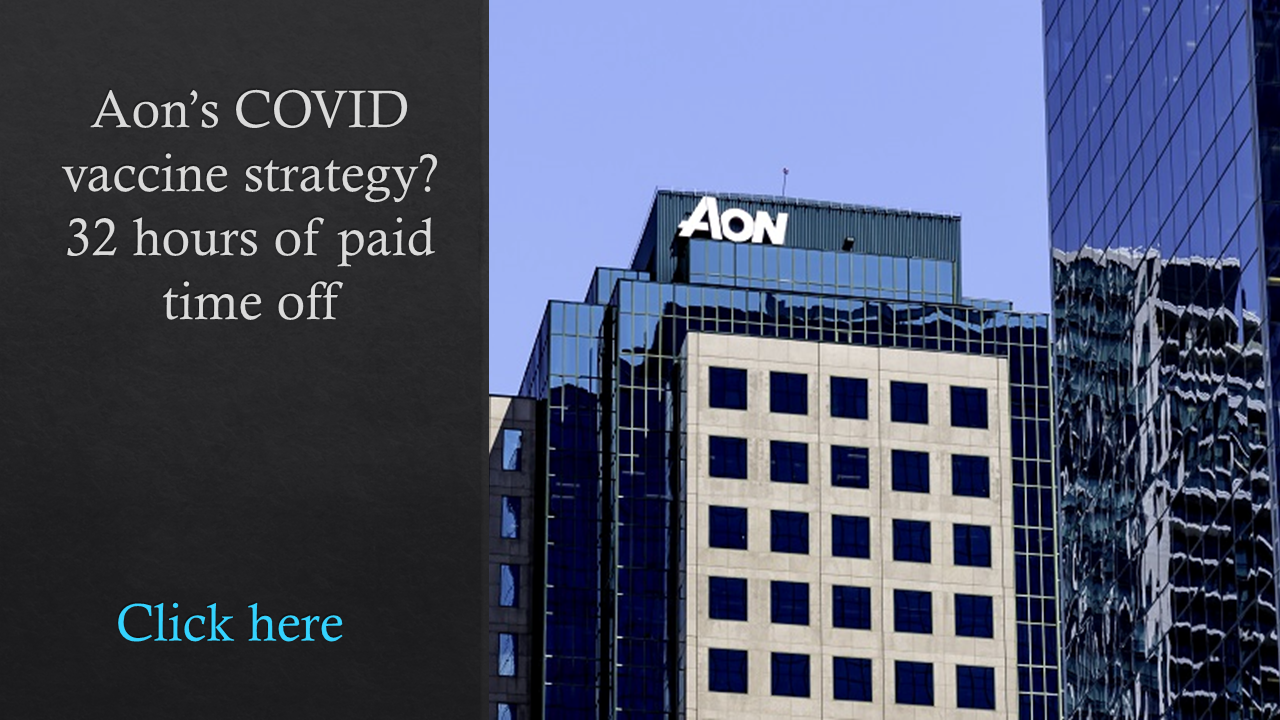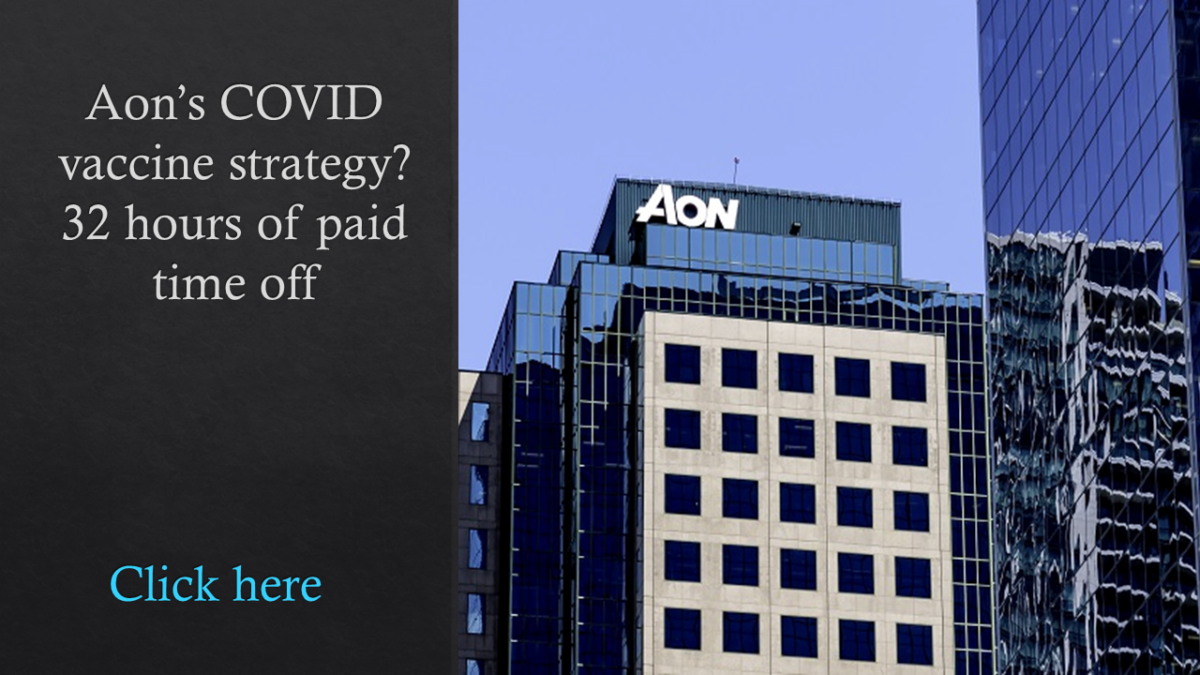Eager to improve vaccination rates, U.S. employers are taking measures to educate, incentivize and make COVID-19 vaccines more accessible to their employees, according to new data by Willis Towers Watson.
The consulting firm, which surveyed 446 employers, found that 60% of organizations have communicated the value of vaccines to employees, while 35% say they are planning or considering the same. More than a third (35%) said they have created policies and procedures to facilitate worker vaccination, while another 50% are considering doing so. And about a quarter (23%) are obtaining vaccines to administer to employees or facilitating access to vaccines through a third party. Among employers that have taken action, or are planning or considering doing so, more than half (55%) are arranging for vaccines to be administered at retail pharmacies, while 45% plan to create a center or onsite/near-site facility to deliver vaccines.
 “Employers understand that by taking an active part in supporting the vaccination of employees, they can play a crucial role in ending the pandemic,” says Jeff Levin-Scherz, M.D., population health leader for Willis Towers Watson. “A common strategy for employers is to make vaccines an easy choice for employees by first helping convince them to get the vaccine and then making it easy for them to do so.”
“Employers understand that by taking an active part in supporting the vaccination of employees, they can play a crucial role in ending the pandemic,” says Jeff Levin-Scherz, M.D., population health leader for Willis Towers Watson. “A common strategy for employers is to make vaccines an easy choice for employees by first helping convince them to get the vaccine and then making it easy for them to do so.”
And while not widespread, incentives to get vaccinated also are a growing strategy: Two in 10 respondents are offering incentives to get vaccinated, while nearly three in 10 (29%) are planning or considering doing so. Among those, 39% are providing extra leave or vacation time to get vaccinated, while a quarter (27%) are providing additional leave to employees who have negative reactions or get sick from the vaccine. One in 10 are offering cash or other financial incentives.
The research from Willis Towers Watson comes as a handful of employers have announced incentives, education plans and more in recent months to encourage their workers to get inoculated.
Aon is offering all of its some 50,000 employees two days of paid time off for each injection; Kroger is giving employees who get the vaccine a one-time payment of $100 and Target is providing hourly employees up to four hours of pay—two hours for each vaccine dose—as well as free Lyft rides (up to $15 each way) to get to and from their appointments. Aldi, Dollar General, Darden Restaurants and Trader Joe’s are all offering four hours of pay total for getting the two doses.
Related: Still weighing vaccine incentives? Here’s what 12 employers have done
Although employers are taking a more active role in vaccination plans, the majority aren’t requiring employees to get the shot—at least not yet. One in 10 employers (10%) are planning or considering requiring proof of vaccination as a condition of employment, though nearly one in four (23%) are planning or considering requiring employees to get vaccinated for them to return to the worksite, Willis Towers Watson finds.
Employer efforts are seen as vital in helping boost vaccination numbers. Research has found that employees hesitant to get vaccinated are more likely to do so if their employer encouraged them or gave them a financial incentive. A recent survey from Eagle Hill Consulting also found that the majority of employees (57%) think employers should offer vaccine incentives to employees, and just over half (52%) think they should mandate it.
Employee vaccinations also are important for employers in getting back to business. The Willis Towers Watson survey, for instance, finds that more than eight in 10 employers (84%) agree immunization of the population will allow the country to reactivate the economy, and 80% of employers say it will allow them to move to a new normal in terms of returning to the workplace.
Related: Inside one HR leader’s aggressive COVID-19 vaccination plan
“Employers are eager to improve vaccination rates, contain any further spread of the virus and bring employees back to work,” says Chantell Sell Reagan, national pharmacy community clinical leader at Willis Towers Watson. “Despite the optimism about recovery, healthcare will remain a top priority for employers as they seek to strengthen wellbeing programs, reemphasize preventive and mental health services, and implement new plan designs that meet the needs of a post-pandemic workforce.”
